Overview
Every city or metropolitan area desires to create a startup ecosystem that will support entrepreneurs in their efforts to create high growth, innovation companies. The message from those who have succeeded is:
It takes time, commitment and funding by a range of stakeholders with a unified vision of supporting a startup ecosystem to their community.
Many regional areas face a choice: Either they participate in the development of a start-up ecosystem or they will see their most promising companies and talented human resources move to other cities where an active start-up ecosystem does exist.
Listen to the podcast:
Within the State of Texas, a combination of angel investors and local government have developed a blueprint and protocol for both large cities and smaller communities to support entrepreneurs in a local and Texas state-wide ecosystem.
This podcast will discuss how the following parties have a role in creating a startup ecosystem:
- A local university startup program or accelerator
- Community support, chamber of commerce, economic development agencies
- Access to accredited or high net worth investors
- Services infrastructure: bankers, lawyers, accountants
- Business Mentors and advisors
My guest is Jamie Rhodes, the Founder of the Central Texas Angel Network known as CTAN. The conversation provides the background of how CTAN was started and lessons learned in connecting both large cities as well as smaller communities to the Alliance of Texas Angel Networks.
Transcript
Jim Innovation entrepreneurship and access to capital are widely viewed as essential to providing jobs and participation in a 21st century economy. However getting that process started is both an art and a science. It takes several essential components and a couple of well timed sparks to ignite a startup ecosystem. So the question is Is there a model for regional startup ecosystem development. And if so what is it.
Jamie. I was one of the few proponents out working with the governor’s office and out in the state saying venture capital is great. We need more venture capital but there are 100 Angel deals for every one deal th at fits the VC model. And those hundred Angel deals can make lots of money for the investors, for the community, for the entrepreneurs.
My name is Jim Connor. Welcome to Game Changers Silicon Valley. This segment of. This segment of tonight’s show will look into the development of the startup ecosystem in the state of Texas and how it leverages its unique resources to engage with large cities as well as smaller communities. My guest is Jamie Rhodes the founder of several angel investor groups in Texas notably the central Texas angel network in Austin. Jamie welcome to the show. Let’s start with an overview of how you became involved in helping start these various angel groups and innovation centers throughout Texas.
Jamie It’s a pleasure to be here Jim. So I was a serial entrepreneur and an angel investor and did the around the turn of the century with the dot-com bust. The angel group in Austin disintegrated at that point I started driving to Houston which had a very active angel network Houston Angel Network and. After doing that for a couple of years one time I was having lunch with the president of the Chamber of Commerce in Austin and I whined to him about why don’t I have to drive to Houston to see Austin entrepreneurs and fund them and to their credit the Austin Chamber of Commerce, in particular, Mike Rawlings who was the president then and still is, I had figured out that Austin needed more startup capital that may be hard to believe now because we talked about Austin and all the sources of startup capital but at that point there were very few sources. So the Chamber of Commerce and I worked together to start the central Texas Angel Network. I was the champion for it in the community they were the back end. They were invaluable I did not know non-high tech, high net-worth individuals. They did. We worked together. We created the Central Texas Angel Network and within a couple of years had built it to be a very active night network and writing lots of checks. At that point I reached out to Houston and said, if we’re gonna have the best entrepreneurs come to come for angel funding. We need to syndicate deals because neither of our angel networks alone can muster, generally, we can’t muster a couple of million dollars. Syndication is a way to do that.
Jim What is syndication in your mind then, so our audience knows
Jamie Well so it’s generally an entrepreneur will have a lead investor or lead an angel group that sets the terms of the deal and invests the first part of the round.
Jim And the terms of the deal would be the value they’re going to place in the company,.
Jamie Pre-Money valuation and how much they’re going to invest what the board seats are going to look like and then once that’s set syndicating means you take that deal to other investors and see if they want to invest at those terms. And so Houston and Austin then began syndicating deals about that time, Texas was trying to ramp up its the capital available for startups and there was a focus on venture capital. and I was one of the few proponents out working with the governor’s office and out in the state saying venture capital is great. We need more venture capital but there are 100 Angel deals for every one deal that fits the VC model. And those hundred Angel deals can make lots of money for the investors, for the community, for the entrepreneurs. The great news is everybody got it. And communities started inviting me to come mentor them on starting an angel group. I was one of the few people around in Texas that had done it and a methodology evolved that’s been very effective and it’s showing up at a community working with the economic development folks and usually a local university on how we’re going to create deal flow and in and educate investors. And with as this alliance of Texas angel networks grew what we found was a community could have one or the other and still work well with all the investors around Texas. That is a community might not have a university. They might have a number of high net worth individuals that made their money in oil and gas and real estate and such as that and those individuals are interested in investing in startups even though the community is not creating deal flow when they plug into our alliance of Texas angel networks they see deal flow from other sources. So from Austin and Houston. The reverse also works. Some communities have a university and they have deal flow but they don’t have any check writers. Those communities can with careful vetting and mentoring of their deals can introduce them into the network for syndication.
Jim So this is a little bit of a chicken and egg problem you know which came first. Have you found that it’s the economic development agency with the university is the key starting point because you can generally find high net worth individuals sooner or later in a community is at the right beginning point.
Jamie I would say it’s absolutely critical. I’ve failed a number of times and trying to help angel groups foster angel groups in the community because either the city fathers the economic development folks the Chamber of Commerce felt like money from their investors sometime would be flowing out to entrepreneurs and companies in other cities and they didn’t like that in Texas. Other cities in Texas in Texas or anywhere. And what I had to do is convince them that that that was OK because what we needed was smarter investors. And if that city develops smarter investors through investing in good deals even if they were in other cities in Texas those investors then could mentor the deals in that community better and get them ready for investment more successfully. And that indeed has worked out so that some communities which everybody wasn’t on the same page and so we couldn’t get going at first now have figured that out generally and we’re having great success.
Jim So the other thing you mentioned which I think has a lot appeal to different people regions as they can invest if they’re in Lubbock, for example, you mentioned they can invest in a deal that’s taking place in Austin.
Jamie Exactly.
Jim Okay. So on a practical month to month, how does this work? Do you guys send emails around do you get entrepreneurs to go round and make presentations. How does this actually work?
Jamie Well so it’s important for everybody to trust each other in these deals.
Jim How do you do that. I have to ask you that because that’s one of the biggest stumbling blocks.
Jamie Well that’s exactly right. And we do it a couple of ways and one is with the investors we do try and get the investor together once a year. We have an all Texas investor event. And so investors get together they meet each other. They say hey I saw your name on the cap table and have conversations and drinks with their fellow investors from around Texas and get to know them. But also the executive directors. So I host a monthly call with all the executive directors were up over a dozen now angel groups.
Jim [00:08:45] Let me ask you this, the corporate executive director is a person who’s managing Angel group’s operations. Is that correct?
Jamie. That’s exactly right. And although it seems the most effective groups have angel investors as their executive directors. The more common scenario is not somebody who’s hired to run the group. And so that’s what we have mainly in Texas. People that are hired to do that. They get on the phone together once a month. We get on the phone. Everybody talks about their deals. So in San Antonio, they might describe the deal and the folks in Lubbock, the executive director from Lubbock, might say hey, our investors like that kind of deal. And that starts the communication of this syndication of that deal. Plus we do keep a spreadsheet so that if later on Lubbock thinks hey that deal might be right for us it can go to the spreadsheet see what that deal was and contact San Antonio and say I’m interested in that. We do Some of the groups a lot of the groups use some of the angel investor tools that are out there but we find their quality waxes and wanes and so we make sure we have documentation that we can share without going through the many tools that exist.
Jim Very good. So you’ve also done quite a bit of work helping universities launch an incubator or an Innovation laboratory we’ll say. Is that accurate?
Jamie Yes. And universities seem to follow a path where they get interested in entrepreneurship. Then they build an entrepreneurship program using the business school and then they have a business plan contest because they think their students have neat ideas and then they realize we need an incubator for these great ideas and then they realize, now we need people to invest in those deals. So I’ve watched many universities in Texas, around the nation, go through that progression and that’s where if the community hasn’t already got an angel group, the university will often reach out into the economic development folks or the city leaders and say we need this and they’ll realize they do. And that’s where often I can help just because I’ve been through the creation of angel groups enough that I can share with them the common pitfalls and help them avoid them.
Jim Have you have had any insights the universe is really doing an excellent job on us versus the ones that miss the mark.
Jamie Well, It’s very difficult commercializing University Technology and Stanford is the model in M.I.T. but Stanford and M.I.T. invented the game. And so it’s my impression, my experience, that many universities try and imitate that but it’s just extremely difficult if you’re in Palo Alto and every people you’re surrounded by people who’ve created Hewlett-Packard and Apple and other Google and so forth. Then you can find really quality mentors you can find people who can understand an idea and have a vision can help you shape your vision as well as write you a check. In flyover country, that’s a lot trickier. And in fact I would say in flyover country, so everybody in the middle in between Boston and Silicon Valley, the entrepreneurs have to figure out how they’re gonna make money and be able to convince investors, here’s how I make money. So here’s how you get an ROI on this technology we’re commercializing.
Jim Are you developing, are you helping the investors to, shall we say, accept the level risk in these startup companies.
Jamie Well they are highly risky. And at first, I was emphasizing to investors Hey you ought to try this is for the good of the university. These professors are figuring out save the planet technologies but it’s so difficult that I no longer do that. And in fact, I think we need more altruistic first steps in funding of spin-outs from universities. And there’s a fellow nationally, his name is Isaac Berkus and he’s creating a really smart way to go in and evaluate technologies and labs and professors and inventions to try and pull them out and have a better success rate at commercializing the technology. I’ve run into a few other people that are trying smart innovative ways to do that. And then there’s a lot of people who just try the brute force method and it’s very difficult.
Jim Difficult to get the agreement to license the technology.
Jamie Well difficult to have success at licensing at commercializing the technology. Some technology commercialization operations with some universities are very entrepreneur-friendly. Some are not. They all have to go through a stage where they get over the fact that or licensing a technology to a startup is not licensing a technology to Dow Chemical. And so they have to realize the terms have to be much more friendly to let the startup have a chance at succeeding. But many universities have recognized that. My impression of the Stanford model is the way to go and that is just let these people go commercialize the technology regardless of licensing and have great success and they will come back and donate money if they’re wildly successful to create the business school or the music school or the football stadium or whatever it is.
Jim So what you are saying basically get your technology out there. Let these guys go out, men and women, do what they can. Don’t bind to such difficult terms that they can’t operate. Give them some freedom to make some errors and learn your way through it and it will probably come back and reward you.
Jamie That’s exactly right. I would like to mention one other item in these smaller locations having an ecosystem is important. And John Tilly Butler a professor at the University of Texas McComb School of Business has taught me about ecosystems. An ecosystem is where you have financial advisors and lawyers and bankers who understand startups and that sounds simple but it’s really not. For example, a typical lawyer knows how to start a corporation. If you ask him but generally they deal with small businesses and that means a small business problem is if you and I were starting a restaurant, the terms of the agreement would focus on if I die, how do you not be in business with my wife? But yet she gets the financial rewards her fair share of the business whereas these high growth investor funded companies, that’s not a concern. There are a whole set of different terms in the term sheet in the bylaws for these high growth companies and so you have to. each community has to develop the expertise usually imported at first and then have their homegrown lawyers develop the expertise in how to do these specialized Angel deals that we all do.
Jim So the ecosystem as you said accountants bankers and lawyers correct is that right.
Jamie That’s part of it. Universities are another part of it, incubators are a part of it.
Jim And then local investors.
Jamie Absolutely. Yeah.
Jim So the local investors actually take on a mentoring role with the company after they’ve invested with that company.
Jamie Well, I believe they should. I believe it increases the chances for success. I think often angel investors haven’t been entrepreneurs. They don’t recognize how difficult it is and they don’t realize how the entrepreneur can both benefit from their advice, their business experience. And they also don’t recognize how if their business experience was working at a company that had a billion dollars in revenue, that their business experience is not tremendously relevant to five people in a garage trying it at a pre-revenue.
Jim I want to really thank you for this conversation. I want to let our audience know that you are truly a celebrity in Texas. Whether you want to deny it. I’m sure you would. But I know you are. And I just want to commend you in a tremendously great contribution you’ve made to the entrepreneur community and the universities and the investor class developing the investor class out there. So it’s remarkable. And you did it for no compensation whatsoever.
Jamie It was something I could give back to my State and I was glad to do it.
Jim That’s great that’s a remarkable story as I told you earlier today. I probably wouldn’t have gone that far but now you’re the man to do it. So you had the skills and knowledge and the contacts and the work ethic to do it. So I want to congratulate you for that and recognize that. And is there any follow-up information people you know angel groups or entrepreneurs or potential investors who want to contact you.
Jamie Well if you go to the AllianceOfTexasAngelNetworks.com you’ll see a list of over a dozen angel networks around the state of Texas. And I encourage entrepreneurs with great deals to go use that resource to find angel groups to go to and any investors who want to come get involved with this.
Jim [00:18:38] So that’s how it works. You submit to the Alliance of Texas Angel…
Jamie No. That Web site is simply you see a description of the various angel groups and it leads you to their Web site. So it’s a very loose alliance.
Jim Jamie it’s been great. I really want to thank you for making the trip up here to the Bay Area. And I want to wish you every success going forward.

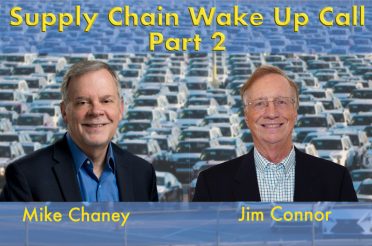
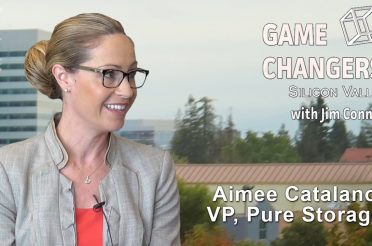

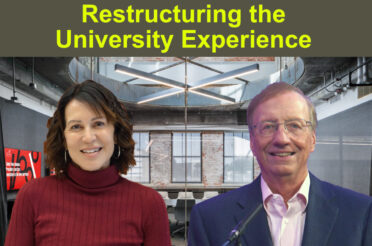
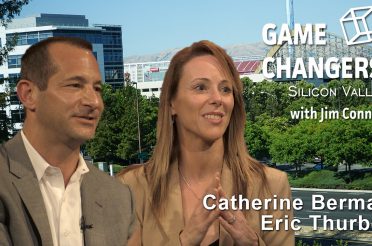
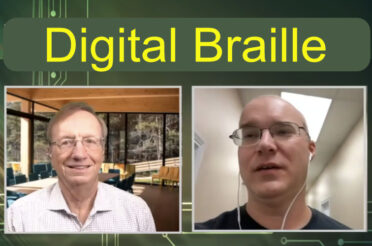
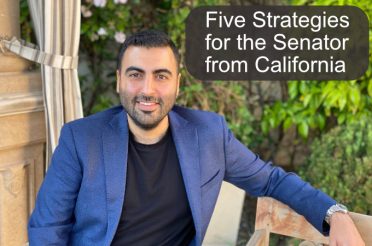
Leave a Reply
You must be logged in to post a comment.